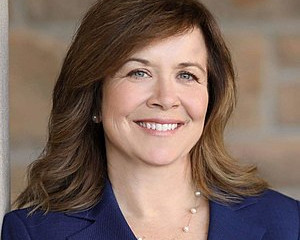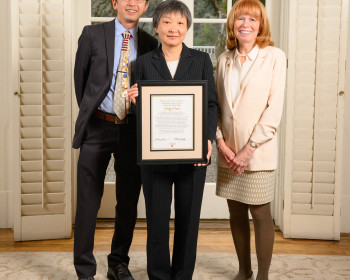GEI Participates in SB 978 Utility Reform Process
Open gallery

Last month, Green Energy Institute (GEI) Staff Attorney Amelia Schlusser presented information about how Oregon’s utility laws and regulatory framework might change to meet current and future energy needs, while also meeting greenhouse gas reduction goals. Schlusser was one of three presenters for the Low-Carbon Future Group before the Oregon Public Utility Commission (PUC) at its May SB 978 meeting.
The Low Carbon Future workgroup reached agreement that Oregon’s utility regulatory framework needs to adapt to meet the three goals of energy decarbonization: maximize energy conservation and efficiency, transition from fossil fuels to zero-carbon energy sources, and decarbonize the transportation sector and other carbon-intensive end uses.
Schlusser’s team presented to the PUC as well as the other stakeholders participating in the SB978 process, which represent a diverse set of interests, including Oregon’s electric and natural gas utilities, local governments, environmental organizations, renewable energy developers, policy analysts and energy consumers.
“The amount of agreement within the group was a very positive sign that Oregon has the will to decarbonize the energy system,” Schlusser said.
The Low Carbon Future group identified a series of policy mechanisms that Oregon could implement to advance its decarbonization efforts. All members agreed that the Oregon legislature needs to adopt an economy-wide mandate to cap and reduce carbon emissions and achieve the state’s 2050 greenhouse gas reduction goals.
“While there are some varying opinions among group members regarding specific strategies for achieving Oregon’s decarbonization goals, the fact that a group of people with diverse experiences and views were quickly able to agree on a common goal suggests that Oregon’s energy sector is poised to transition to a low-carbon future,” said Schlusser. “Stakeholders, regulators, and policymakers should continue to work together to develop effective strategies moving forward.”
To learn more about the low-carbon future group’s findings and recommendations, read the group’s May 31 memo to the PUC Commissioners. Memos from each of the four SB 978 workgroups (economic efficiency, customer choice, access, and low-carbon future) are available on the PUC’s website. Stay tuned for more SB 978 updates.
Law Communications is located in room 304 of Legal Research Center (LRC) on the law Campus.
MSC: 51
email jasbury@lclark.edu
voice 503-768-6605
Cell: 626-676-7923
Assistant Dean,
Communications and External Relations, Law School
Judy Asbury
Law Communications
Lewis & Clark Law School
10101 S. Terwilliger Boulevard MSC 51
Portland OR 97219

